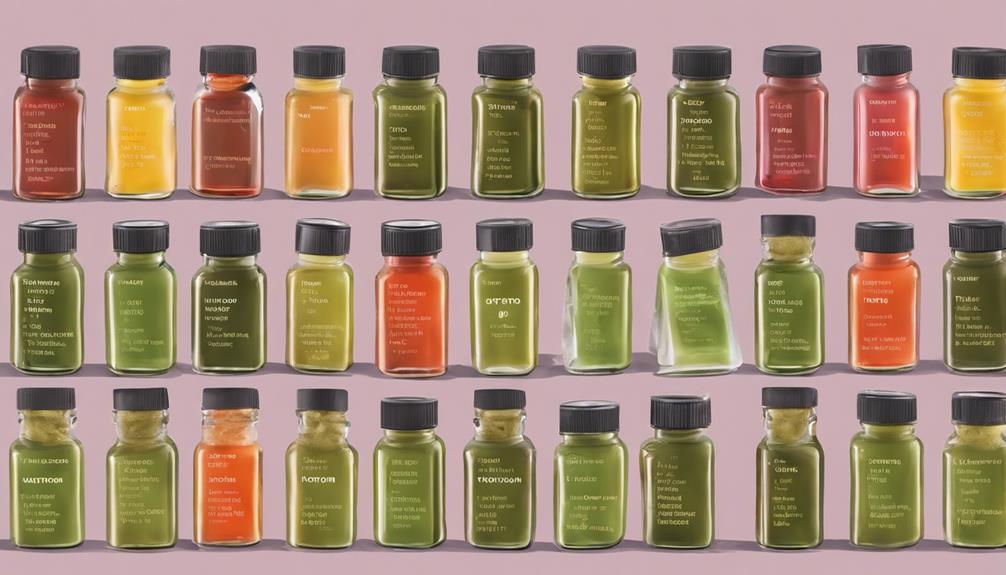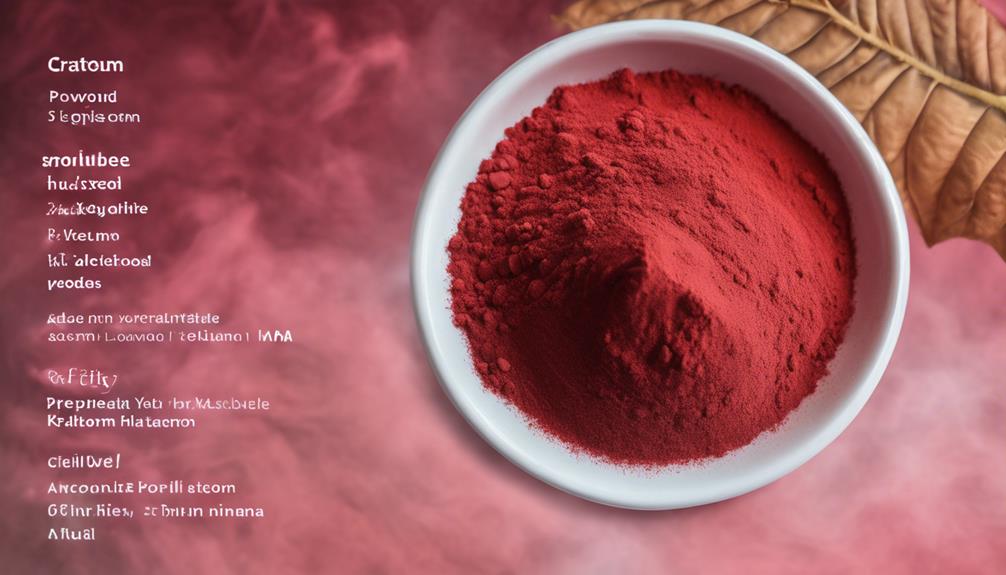Deprecated: mb_convert_encoding(): Handling HTML entities via mbstring is deprecated; use htmlspecialchars, htmlentities, or mb_encode_numericentity/mb_decode_numericentity instead in /home/users/kratomfiles/www/kratomfiles.com/wp-content/plugins/quick-adsense-reloaded/includes/template-functions.php on line 3552
Kratom and coffee are two popular substances that have been consumed for centuries for their stimulating effects. Kratom, also known as Mitragyna speciosa, is a tropical evergreen tree in the coffee family native to Southeast Asia. Its leaves have been traditionally used for their medicinal properties, including pain relief, energy-boosting, and mood enhancement. On the other hand, coffee is a brewed beverage made from roasted coffee beans, which are the seeds of berries from the Coffea plant. It is one of the most widely consumed beverages in the world and is known for its stimulating effects due to its high caffeine content.
Both kratom and coffee have gained popularity for their ability to provide a boost in energy and focus, making them popular choices for people looking to enhance their productivity and mental alertness. However, they also have their own unique set of benefits and risks that should be considered before incorporating them into your daily routine.
Key Takeaways
- Kratom and coffee are both natural stimulants that have been used for centuries for their energizing effects.
- The benefits of kratom include pain relief, improved mood, and increased energy levels.
- Coffee offers benefits such as improved mental alertness, enhanced physical performance, and a reduced risk of certain diseases.
- The risks of kratom include potential addiction, withdrawal symptoms, and adverse effects on the liver and kidneys.
- Coffee consumption can lead to increased anxiety, disrupted sleep patterns, and potential digestive issues.
The Benefits of Kratom
Kratom has been used for centuries in Southeast Asia for its medicinal properties. One of the main benefits of kratom is its ability to provide pain relief. The active compounds in kratom, such as mitragynine and 7-hydroxymitragynine, have been found to have analgesic properties, making it a popular natural alternative to traditional pain medications. Additionally, kratom has been reported to have mood-enhancing effects, with users experiencing feelings of euphoria and relaxation after consuming it. This makes it a popular choice for individuals dealing with anxiety, depression, or stress.
Furthermore, kratom has been known to provide a boost in energy and focus, similar to the effects of caffeine. This makes it a popular choice for individuals looking for a natural way to enhance their productivity and mental alertness without the jitters or crashes associated with caffeine consumption. Some users also report improved cognitive function and mental clarity after consuming kratom, making it a popular choice for students and professionals alike.
The Benefits of Coffee
Coffee is one of the most widely consumed beverages in the world, and for good reason. One of the main benefits of coffee is its ability to provide a quick boost in energy and mental alertness due to its high caffeine content. Caffeine is a natural stimulant that works by blocking the effects of adenosine, a neurotransmitter that relaxes the brain and makes you feel tired. This results in increased alertness, improved concentration, and enhanced physical performance.
In addition to its stimulating effects, coffee has also been associated with several health benefits. Studies have shown that regular coffee consumption may be linked to a reduced risk of certain diseases, such as Parkinson’s disease, Alzheimer’s disease, and type 2 diabetes. Furthermore, coffee contains a high level of antioxidants, which can help protect the body from free radical damage and reduce inflammation. Some research also suggests that coffee may have a protective effect on the liver and could potentially reduce the risk of liver disease.
The Risks of Kratom
| Risk Factor | Description |
|---|---|
| Dependency | Kratom can lead to physical and psychological dependence, especially with long-term use. |
| Withdrawal Symptoms | Quitting kratom can result in withdrawal symptoms such as muscle aches, insomnia, irritability, and aggression. |
| Health Risks | High doses of kratom can lead to adverse effects on the heart, liver, and kidneys. |
| Interactions with Medications | Kratom can interact with other medications, leading to potential health risks. |
| Contamination | There is a risk of kratom products being contaminated with other substances, leading to additional health risks. |
While kratom has several potential benefits, it also comes with its own set of risks that should be considered. One of the main concerns with kratom is its potential for dependence and addiction. The active compounds in kratom can interact with opioid receptors in the brain, leading to feelings of euphoria and relaxation. This can make it addictive for some individuals, leading to withdrawal symptoms when they stop using it.
Furthermore, there have been reports of adverse effects associated with kratom use, including nausea, vomiting, constipation, and dry mouth. In some cases, kratom has also been linked to more serious side effects, such as seizures, hallucinations, and liver damage. Additionally, there have been concerns about the potential for contamination of kratom products with other substances, such as heavy metals or other drugs, which can pose serious health risks to consumers.
The Risks of Coffee
While coffee is generally considered safe for most people when consumed in moderation, it also comes with its own set of risks that should be considered. One of the main concerns with coffee is its high caffeine content, which can lead to side effects such as insomnia, nervousness, restlessness, stomach upset, fast heartbeat, and muscle tremors. Excessive caffeine consumption can also lead to caffeine dependence and withdrawal symptoms when trying to cut back on consumption.
Furthermore, some individuals may be more sensitive to the effects of caffeine and may experience anxiety, irritability, or rapid heart rate after consuming coffee. In addition, excessive coffee consumption has been associated with an increased risk of heart disease in some individuals due to its potential to raise blood pressure and cholesterol levels. It can also lead to digestive issues such as acid reflux and stomach ulcers in some individuals.
Comparing the Benefits and Risks of Kratom and Coffee

When comparing the benefits and risks of kratom and coffee, it’s important to consider individual differences in tolerance and sensitivity to these substances. Both kratom and coffee have the potential to provide a boost in energy and mental alertness, making them popular choices for individuals looking to enhance their productivity. However, kratom has unique benefits such as pain relief and mood enhancement, while coffee is associated with potential health benefits such as reduced risk of certain diseases and high antioxidant content.
On the other hand, both kratom and coffee come with their own set of risks that should be considered. Kratom has the potential for dependence and addiction, as well as adverse effects such as nausea, vomiting, and liver damage. Coffee has the potential for caffeine-related side effects such as insomnia and nervousness, as well as an increased risk of heart disease in some individuals due to its impact on blood pressure and cholesterol levels.
Ultimately, the choice between kratom and coffee comes down to individual preferences and tolerance levels. It’s important to consume both substances in moderation and be mindful of any potential side effects or adverse reactions. Consulting with a healthcare professional before incorporating either substance into your daily routine is recommended to ensure that it is safe for your individual health needs.
What Are the Similarities and Differences Between Kratom and Coffee in Terms of Benefits and Risks?
Kratom and coffee connection: Both kratom and coffee are known for providing a burst of energy and increased focus. They also have potential health benefits, such as potential pain relief and mood enhancement. However, risks include addiction, withdrawal symptoms, and potential negative effects on sleep and digestion.
What Are the Similarities and Differences Between Kratom and Caffeine in Terms of Benefits and Risks?
When comparing kratom and caffeine benefits, both substances can provide increased alertness and energy. However, kratom is also believed to offer pain relief and mood enhancement, while caffeine is known for its ability to improve mental focus. Both have potential risks, including addiction and withdrawal symptoms, but they can be managed with responsible usage.
Choosing the Right Option for You
In conclusion, both kratom and coffee have their own unique set of benefits and risks that should be carefully considered before incorporating them into your daily routine. Kratom has been traditionally used for its pain-relieving and mood-enhancing properties, while coffee is known for its stimulating effects and potential health benefits. However, both substances come with potential risks such as dependence, addiction, and adverse effects that should not be overlooked.
When choosing between kratom and coffee, it’s important to consider individual differences in tolerance and sensitivity to these substances. It’s also important to consume both substances in moderation and be mindful of any potential side effects or adverse reactions. Consulting with a healthcare professional before incorporating either substance into your daily routine is recommended to ensure that it is safe for your individual health needs.
Ultimately, the decision between kratom and coffee comes down to personal preferences and individual health considerations. It’s important to weigh the potential benefits against the risks and make an informed decision based on your own needs and circumstances. Whether you choose kratom or coffee, being mindful of your consumption and listening to your body’s response is key to ensuring a safe and enjoyable experience with these stimulating substances.
If you’re interested in learning more about the potential risks and benefits of using kratom, you may want to check out this article on kratom addiction signs, symptoms, and treatment. This article delves into the addictive potential of kratom and provides information on how to recognize and address potential addiction issues. It’s important to be well-informed about the substances we consume, whether it’s kratom or coffee, in order to make responsible choices for our health and well-being.
FAQs
What is kratom?
Kratom is a tropical tree native to Southeast Asia, belonging to the coffee family. Its leaves contain compounds that have psychotropic (mind-altering) effects.
What is coffee?
Coffee is a brewed beverage made from roasted coffee beans, which are the seeds of berries from certain Coffea species. It is one of the most popular drinks in the world and is known for its stimulating effects due to its caffeine content.
How do kratom and coffee compare in terms of effects?
Both kratom and coffee have stimulating effects due to the presence of psychoactive compounds. However, kratom also has sedative and opioid-like effects at higher doses, while coffee is primarily known for its stimulating effects.
Are there any potential risks or side effects associated with kratom and coffee?
Both kratom and coffee can have potential side effects and risks, especially when consumed in large amounts. These may include increased heart rate, anxiety, and digestive issues. Kratom has also been associated with addiction and withdrawal symptoms.
Are kratom and coffee legal and regulated differently?
Kratom is regulated and controlled in various ways across different countries and regions. In some places, it is banned or considered a controlled substance, while in others it is legal but regulated. Coffee, on the other hand, is widely available and unregulated in most parts of the world.
Can kratom and coffee be used together?
There is limited research on the potential interactions between kratom and coffee. However, both substances have stimulating effects, and combining them may increase the risk of side effects such as anxiety, increased heart rate, and digestive issues. It is advisable to use caution when combining these substances.










